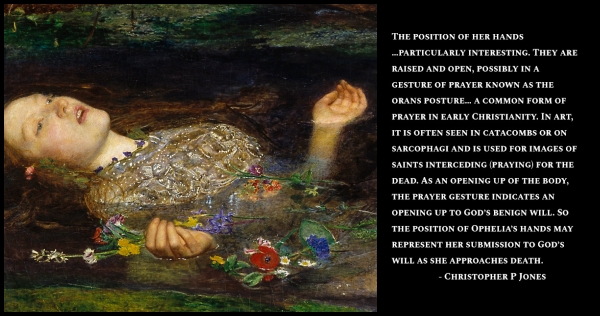Part 16: Ophelia, priestess and peace-parted mystic

To Elizabethans, preparing to die a “good death” involved such things as 1. generosity and love for the community; 2. repentance of mistakes, sins, harm to others; 3. seeking God’s favor, grace, forgiveness; 4. contemplating God at the moment of death. With these, one might be considered a “peace-parted” soul [1]. In Hamlet, Shakespeare shows that Ophelia’s death not only conforms to all of this, but that she is a kind of priestess [2], mourning in song, offering prayers, flowers, symbolic advice, and blessings. 1. GENEROUS: Ophelia sings of her father’s death [3], and of the loss of Hamlet’s love [4], generously expressing grief that others avoid. She prays for Hamlet [5]; sings, and speaks words of blessing as if directing her congregation to sing [6]; bids Claudius “God [yield] you” [7]; bids Gertrude that her true love will be recognized not as a king but as a pilgrim [8]; speaks of transformation [9]; bids that God will be at others’ table [10]. In place of communion, she ...



